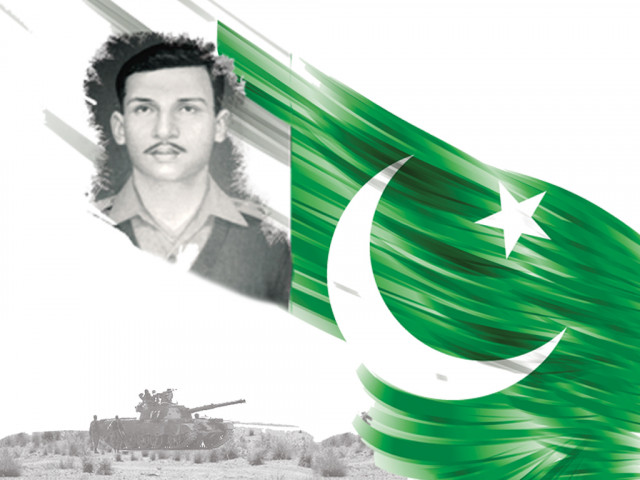Daniel Utarid: Son of the soil
A tale of heroism from the tragic conflict of 1971.

Daniel Utarid: Son of the soil
Just then he received news: the enemy had attacked a platoon of the 31 Punjab Battalion, and it was coming under serious pressure. The platoon had already suffered casualties and was in dire need of reinforcements. Second Lt Utarid immediately led his men to the war front, and was fatally injured while fending off the enemy assault.
An army doctor who tried to save Utarid’s life by removing the bullets from his chest chronicled this young soldier’s last moments in his notebook. As his life bled out from his many wounds, his last words were a request:
“Give this bullet to my mother as a souvenir and tell her that I took it in my chest while defending my homeland.”
And so the brave soldier laid down his life on 13th December 1971, at the age of 19 years, 8 months and 27 days. Just a day later, 31 Punjab gave up its arms and retreated, and on December 16 the Pakistan Army signed the instrument of surrender in Dhaka. Second Lt Utarid’s sacrifice may have seemingly gone in vain, since it did not prevent Pakistan from splitting up, but he received accolades and praise from his commanding officer, Lt Col Riaz Javed, who recommended him for the third highest award of gallantry, the Sitara-e-Jurrat.
The monument at the Punjab regimental centre also bears his name, along with those of others who went down fighting for their country, as a martyr. This young man had the blood of a soldier running through his veins: his father was Lt Arthur Emanuel Utarid (retd) and Lt Col Philip Utarid (retd) was his uncle. He himself was born in the very land that he eventually died in. In 1950, his father was posted to Dhaka, where his wife gave birth to Daniel on February 16, 1952 at CMH Dhaka Hospital.
The family moved to Lahore on their next posting, and Daniel decided to join the Pakistan Army after completing his Junior Cambridge from Saint Anthony’s School. It was not surprising that he was following in his father’s footsteps, as he was brought up on a generous dose of patriotism at home.
He passed out from the Pakistan Military Academy Kakul on November 13, 1971 — just when Pakistan was at the brink of war — after completing the 47th PMA course and receiving a shield for best rifle marksmanship.
Given his passion for the infantry, his first priority was to join the Punjab Regiment. Second Lt Utarid proved his mettle in this when he volunteered himself during the war for a very difficult front in the East, where his uncle, then Captain Philip Utarid, was also fighting.
His father, retired by now, was engaged as a reserve soldier in fighting at Bimbhar, Kashmir. On December 1, 1971, Second Lt Utarid was deputed to 31 Punjab, which at the time was posted in Sylhet, East Pakistan. Later, his colleagues and commanding officer Lt Col Riaz Javed (retd) lauded him as a young man who was always ready for the defence of his country and would enthusiastically volunteer for fighting patrols.
He would return to his unit without so much as looking tired or overwhelmed by the horrors of the war, they would say. It is fitting then, that this son of the soil at least had the honour of being buried in a part of what was once the Quaid’s Pakistan.
Irrespective of where you stand on the divisive Bangladesh conflict, this Christian soldier’s sacrifice deserves to be recognised as an invaluable service to the nation from a soldier who did not see himself as a minority, but a Pakistani. What would it take for the rest of us to accord his community the same respect? Surely that would be more pleasing to his soul than any amount of plaques and awards.



















COMMENTS
Comments are moderated and generally will be posted if they are on-topic and not abusive.
For more information, please see our Comments FAQ